Sustainability has finally become cool. It took long enough, but with each passing day more brands and consumers are making the switch to less harmful products and lifestyle choices. However, it’s hard to say how many companies and influencers are actually significantly reducing their carbon footprint. The prevalence of greenwashing — the act of spreading disinformation, largely by corporate interests, in order to present an eco-friendly public image — makes you wonder: can this movement truly stand on its own legs, or is it just another short-lived capitalistic trend?
Katerina Bogatireva has been thinking about sustainable living for a long time. Katerina, founder of Precycle, a Bushwick-based grocery store that promises to sell items without wasteful packaging, believes that real change has to start within all of us. I sat down with Katerina at AP Cafe to learn about what she’s hoping to achieve with the store, what motivates her to keep fighting for a healthy planet, and how individuals can shift their habits and use their purchasing power to make an impact. (Hint: it takes effort, but is undoubtedly worth it.)
Lyka Sethi: Could you tell me a bit about your background and how sustainability has been a thread throughout your life and work?
Katerina Bogatireva: I grew up in Latvia during the Soviet Union. We always took care of our things, and resources were scarce so we used them as long as we could. It was sort of a circular economy model. And then I came here and it became normal for everything to be about convenience. At some point I started to realize that something was wrong.
When I became a mother, it became even more important. My son has a lot of food allergies, which is kind of unheard of in Europe. So I started thinking about why there are so many food allergies in kids in the US and I did research on industrial agriculture and its faults. I also love to travel, and I’ve seen people live much more sustainably in other places. They just don’t produce as much trash. All of this kept me thinking about sustainability.
I seriously started thinking about opening a store a little over three years ago. I visited a store in Berlin that was the first of its kind in Germany, it’s called Original Unverpackt, it’s a bulk, package-free shop. It was really nice to see how such a small shop, less than 400 square feet, could have so much impact.
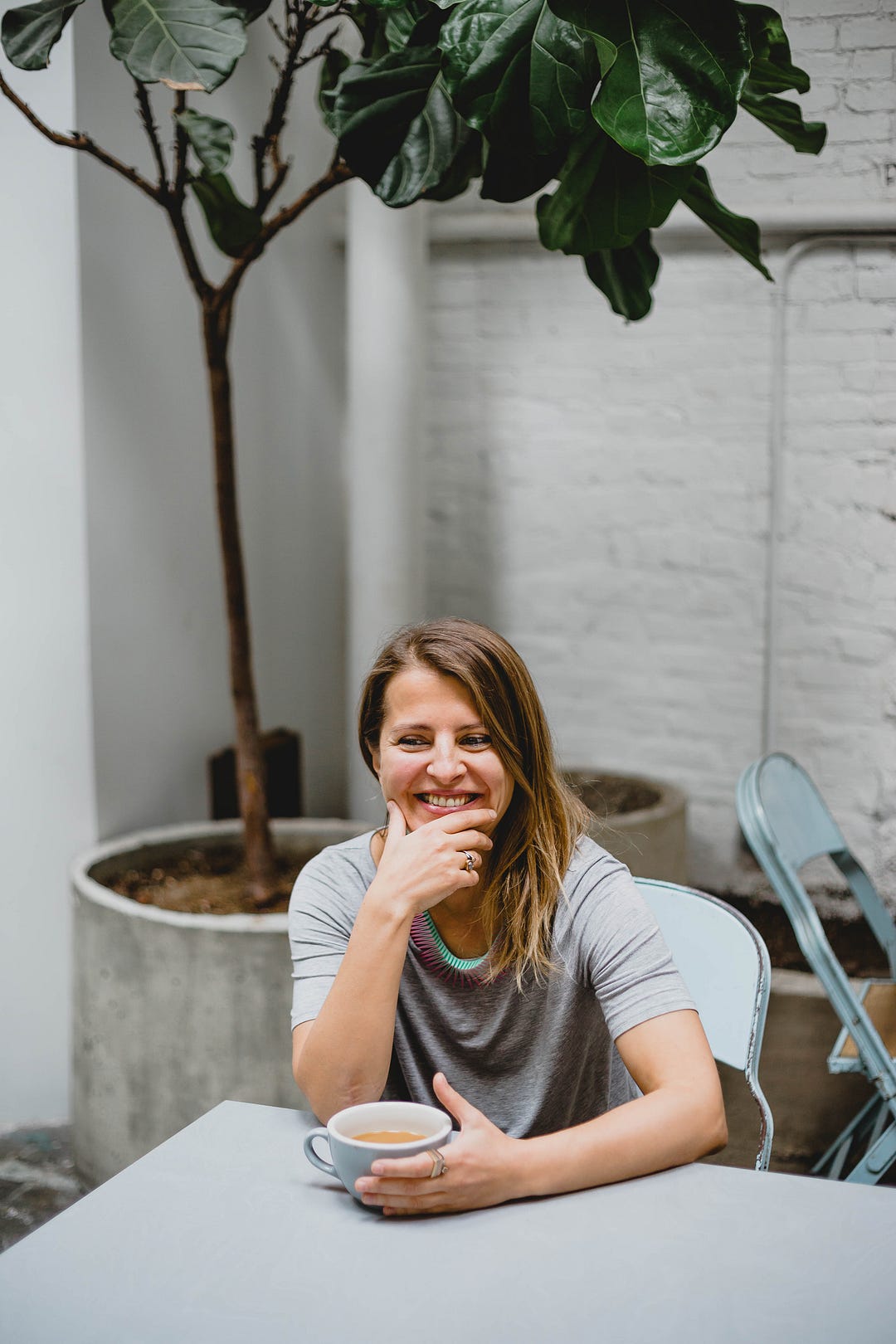
LS: I’m actually temporarily based in Germany and I live right next to one of those stores! It’s great. So, you mention on your website that you didn’t really have a lightbulb moment. And based on what you just explained, it sounds like this was all very organic and gradual, right?
KB: Yeah, it was gradual. I try to live a low waste lifestyle. I go out of my way to buy things in bulk and go from store to store to find the right ingredients. But it’s really inconvenient, so I realized that it would be nice to have something convenient. There are a lot of people that want to make that switch, it’s just really hard to do.
LS: Agreed. What does the term precycle mean?
KB: It basically means that you make purchasing decisions in a way that you don’t have to produce waste.
LS: So that’s kind of like the whole thinking behind the zero waste movement — don’t create the waste to begin with.
KB: Yes, because people think, ‘oh, I’m fine, I recycle, I put plastic water bottles in my recycling bin, and then the magic truck comes and takes them off to recycle.’ But it’s not true — only 9% of plastic gets recycled.
LS: Wow.
*KB: *People are finally seeing these images of piles and piles of trash and thinking… even five years ago I don’t think people really thought about it. It’s like, ‘okay, I recycle, I do my part, I’m done.’ It has to change.
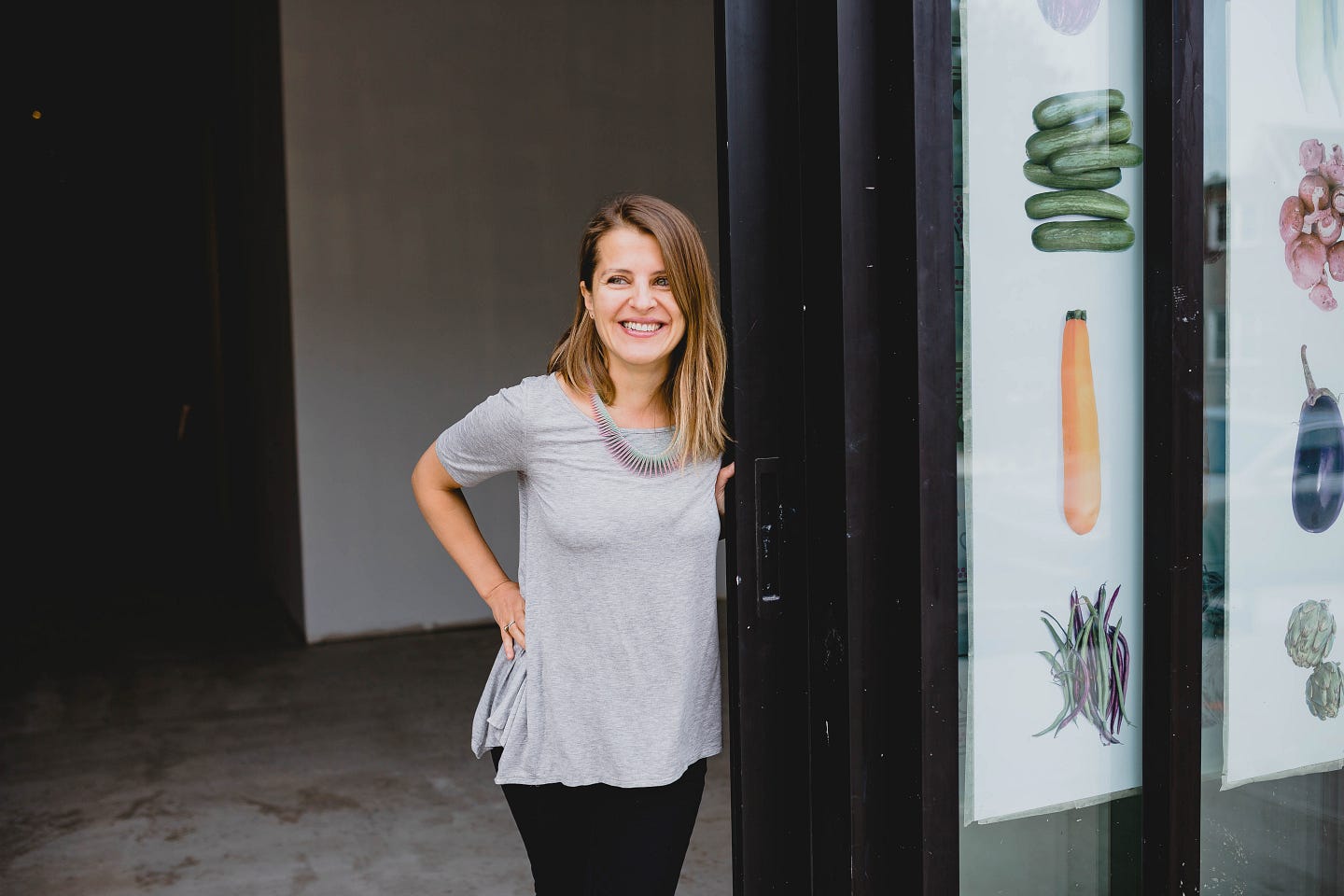
LS: Could you explain your concept for the store and what you think it will bring to the table for people in the area?
KB: It’s basically a hybrid between a farmer’s market, where you can buy local fresh produce, and a bulk shop. Like in the old days, you take your container, you weigh it, you fill it up with whatever goods you want, and you pay for the goods only.
LS: In terms of scale, how do you see this model having a larger impact?
KB: I’m starting with one store, but the goal is to have a Precycle store in every community that wants it. I’ve already had someone reach out from the West Coast asking what they can do to be a part of it. And someone in Mexico who’s asking the same thing. So I think it can multiply. Maybe not Precycle per se, but stores like it.
LS: When is the store opening and are you doing anything exciting for the grand opening?
KB: We’re aiming for a soft opening at the end of November. I’m trying hard to get there but dealing with the DOB and permits takes forever. We’re planning for a Grand Opening on Sunday, December 9th. I’d like to invite the community and meet people and share ideas. One of the ideas I have for Precycle is that in the store we’ll have a section with books on subjects like pollution, food waste, climate change, and people can give and take, like a little community library. I’ll have books for sale as well — like Zero Waste Home, which was very helpful for me personally. It’s by Bea Johnson, who is a zero waste queen. And there’s a zero waste recipe book where a famous chef turns ugly produce that’s going bad into incredible dishes.
LS: Books are a great idea. In terms of food, what types of products will you stock? And what’s your process for selecting suppliers — are there standards around local and organic sourcing?
KB: For produce, it’s mostly small local suppliers. I work with farmers within a 250 mile radius of New York City. I make exceptions for avocados, bananas, and citrus, because those are just staples.
Some of the smaller farms I’m working with can’t afford organic certification. They follow the practices, but they can’t afford to be certified. So I won’t say that everything will be 100% certified organic. But there will be full transparency, and I’m putting together a section on my website where people will be able to read about the farmers and where everything comes from.
In terms of dried food, there’ll be grains, beans legumes, dried fruits, nuts, seeds. I’m also looking into healthy snacks and having liquids on tap such as olive oil and vinegar. Household items as well, starting with things like bamboo toothbrushes and silicon sandwich bags. And some beauty products!
One thing that’s really important to me, and I talk to our suppliers all the time about it, is how are the items going to be delivered to the store? Are they in plastic or paper bags? I’m trying to make decisions based on that as well.
LS: Are you able to have control over that?
KB: No, but I’ve started conversations with companies, some of them were like ‘oh, actually, maybe we should rethink this.’ There are things that I can’t avoid, like plastic linings in boxes of dried fruit. I’m looking into alternatives but haven’t found a solution yet. If there is somebody out there that can help with that, that would be awesome!
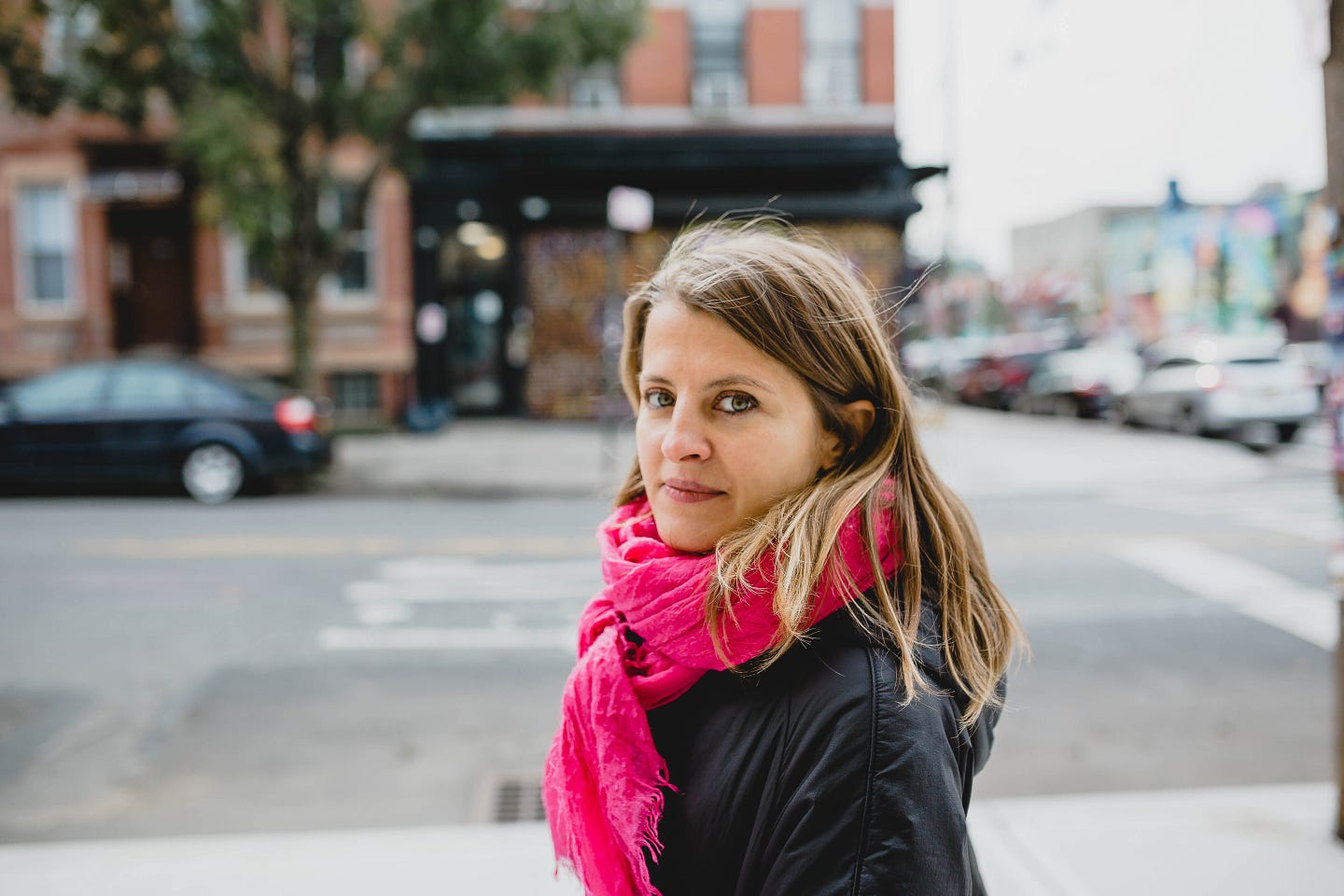
LS: Did you find that there are a lot more obstacles than you originally thought would come up? What are some of those challenges?
KB: Yes. One of the biggest challenges, was to find the products that are fully sustainable and that come in packaging that is at least somewhat eco-friendly. The DOB is another challenge, love those guys. But it’s been a fun journey. I’ve met some incredible individuals and companies.
I also started the process of applying to be a B Corp, because I think that will help me stay aligned with values and have a strategy in place to do well by our stakeholders and the planet. And hold ourselves accountable.
Overall, I’m super excited to open. A little bit scared too! It will be a challenge to convince some people. Even with my friends, some are open, some are like ‘eh, no.’ But there are a lot of people in Brooklyn that are ready for this and would like to have a convenient option to do better.
LS: Do you feel like Precycle will compete with traditional grocery outlets, or is it supplemental?
Well, meat for example we won’t have. In terms of pricing we’ll be competitive, but it is a bit of a niche. You have to remember to bring containers. You have to plan your shopping a bit more. If your household is a Fresh Direct kind of situation, it might be challenging. But I’m hoping that people are willing to give it a try and see that it’s not that difficult.
LS: How did you prepare for this process?
KB: I constantly do research, but I’m not new to business. I’ve had my own business in the past — a wearable art gallery in Brooklyn. It was a fun journey that lasted ten years. I guess I just like things that are a little bit out there! I always liked to be entrepreneurial, to take risks, to solve problems. I think it comes from my mom and my grandmother. My mom is the ultimate risk taker.
LS: How so?
KB: She was one of the first people to actually start a company right after it became allowed post-Soviet Union. So I grew up seeing that. She could move mountains.
LS: Amazing. What do you love about living and working in Brooklyn?
KB: I love the diversity. I’ve been here 18 years. I always felt at home, since day one. I didn’t feel at home in my own country even, but I do here.
LS: Why did you choose Bushwick for the store?
KB: It chose me. I originally wanted it to be in my community, in Clinton Hill, but real estate prices were really high. I started looking into spaces in Bushwick and I settled on this one because it just felt right. And they have solar panels on the roofs!
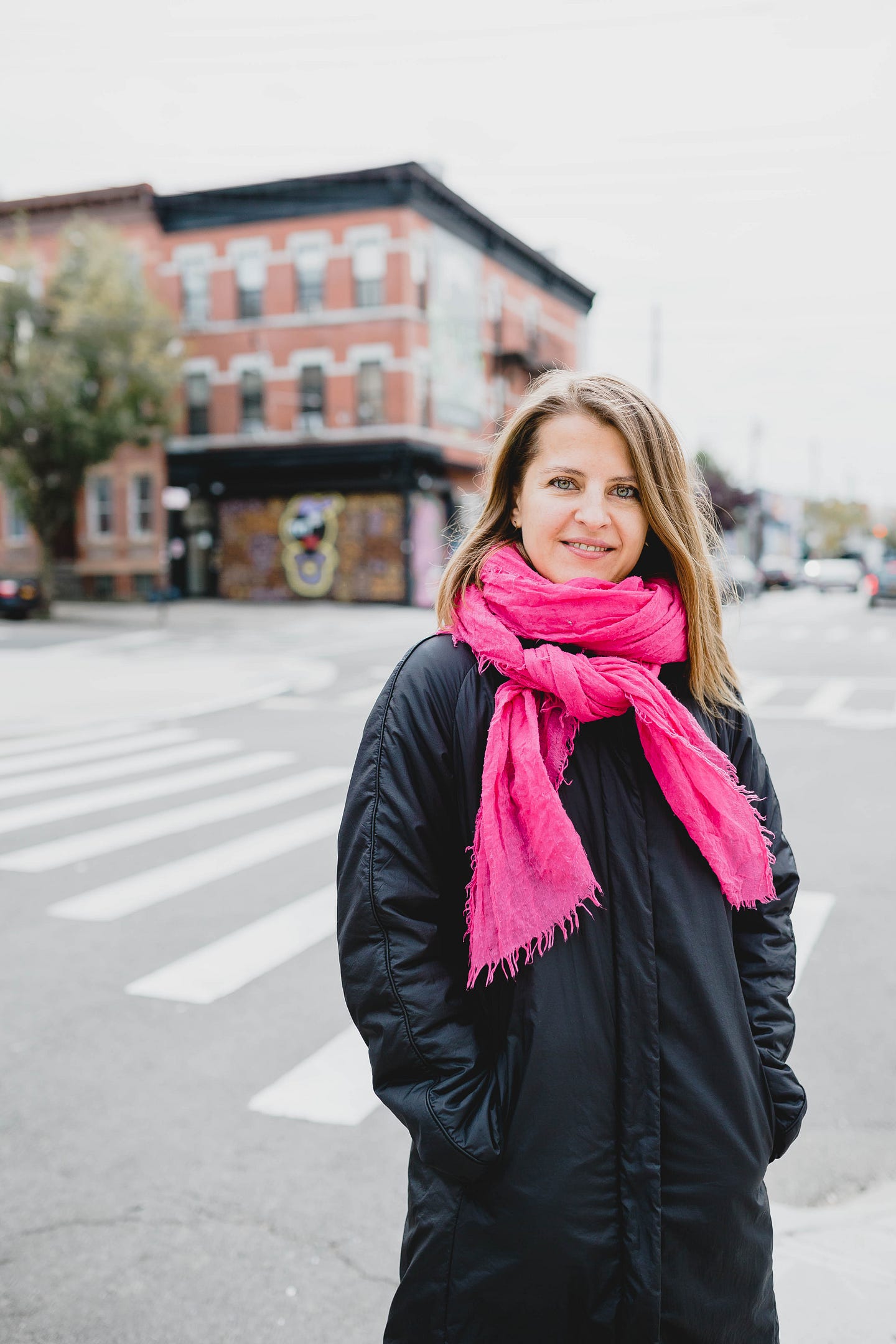
LS: Stepping back… a few weeks ago the latest IPCC report came out and everybody was in shock, though we’ve known about global warming for a while. It’s not a question anymore — it’s accepted as fact, and a lot of people feel helpless. In your mind, how can one person help?
KB: Strength in numbers. Just do your part. Inspire others. It can be contagious in a good way. You do have an impact every time you don’t bring a plastic bag home. In a year you’d save 365 bags from going to the landfill. Or that disposable water bottle. Or four toothbrushes. It seems little but it adds up. I wish the legislation was such that there would be laws in place like other countries, but unfortunately that’s not the case right now. So it’s up to us.
There’s a supply and demand situation, also — at some point, if there’s no demand for this kind of plastic, there’s going to be no need to produce it. And maybe industries will switch to something a little bit more eco-friendly.
LS: What advice do you have for someone who wants to be more sustainable? What would be the first step or two that you would tell them to take?
KB: Refuse what you don’t need and try to reuse things. Replace a water bottle with a reusable one. If you don’t want to do that, reuse the same plastic bottle for as long as you can. It’s not only good for the planet, it’s good for the wallet. Paper towels can be replaced easily. Toothbrush and floss — both have alternatives to disposable plastic. There are many more alternatives like these! Just try one thing a week to see how it goes.
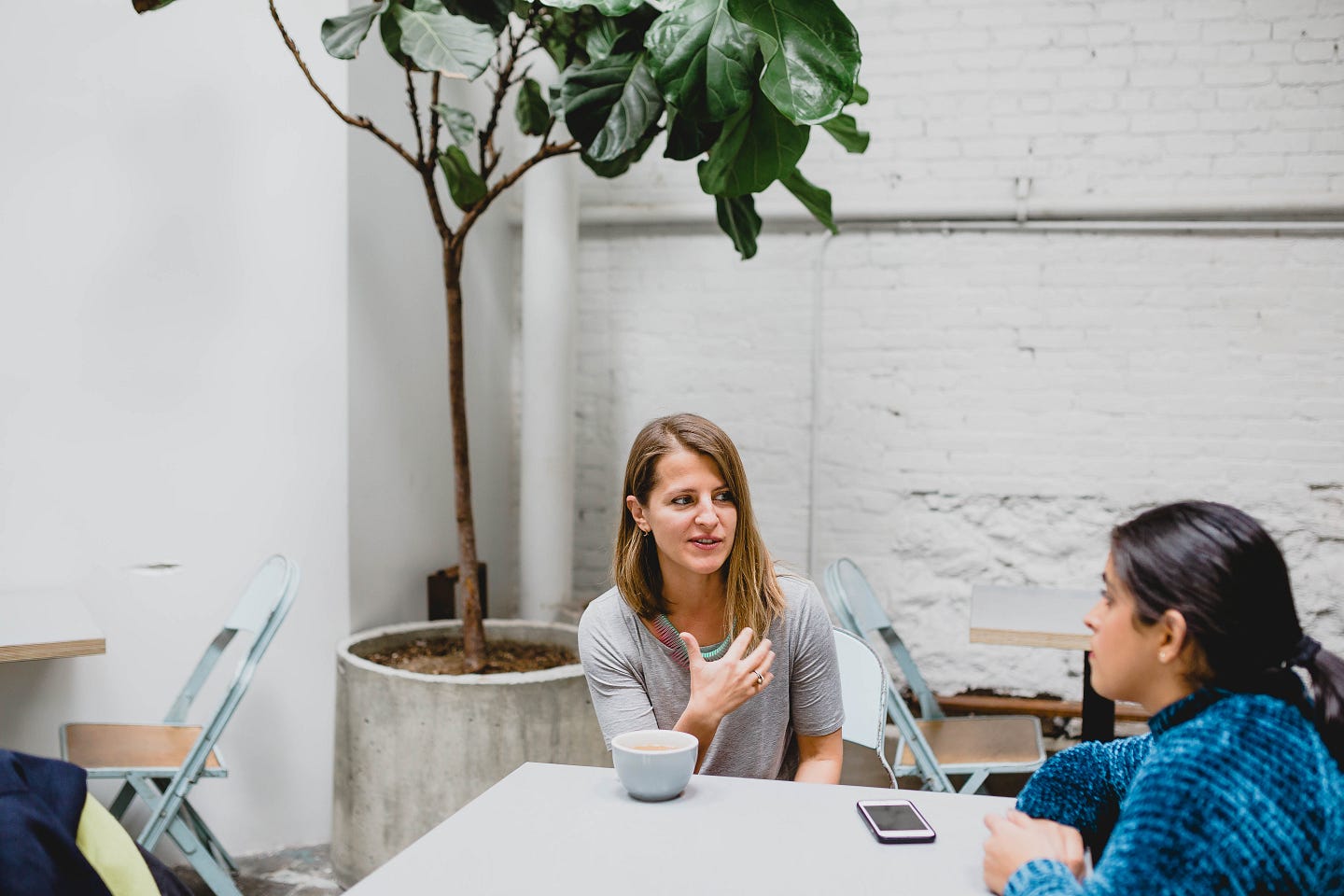
LS: Do you have any words of wisdom for women out there who are looking to do something different, entrepreneurial or otherwise?
KB: Go for it. It’s important to do what you believe in in your life. It’s risky but it’s worth it.
LS: Right, but it’s so hard when you’re in the thick of it… you’re like ‘ah, what am I doing?’
KB: I had that moment just a month ago. I was like ‘this is crazy, why am I doing this?’ I gave up my comfort zone a while ago. There’s no such thing anymore. But it’s exciting. Lots of adrenaline.
LS: What do you tell yourself in those moments?
KB: I remind myself why I’m doing it and what I would be doing with my life if I wasn’t doing this. So that calms me down. I also have a dear friend that told me once, ‘if it was easy everyone would do it.’ And I know that there are many people that believe in what I do and support me, so that’s helpful. Including my family, my son, Sepand. He’s my muse! He is completely, 100% with me on this.
LS: And he’s part of that next generation that will hopefully keep the movement going.
KB: Yep. We’re leaving them a mess. But I think we can do something about it. Everyone just needs to chip in a little bit.
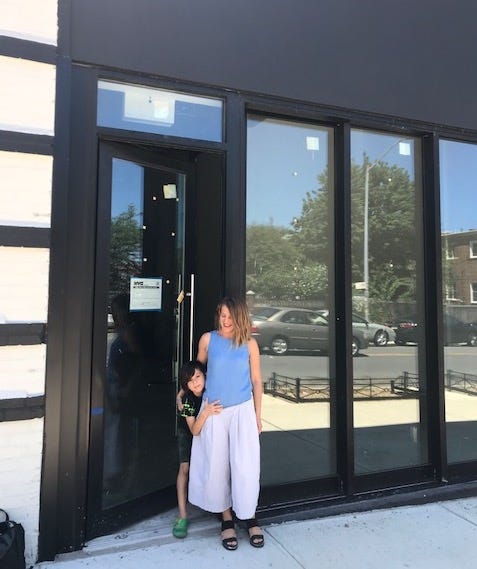
Learn more about Precycle and contribute to their Indiegogo campaign here. This fundraising initiative will help Katerina complete construction, furnish the store, and secure inventory for the grand opening. Rewards include cute tote bags and Precycle shopping vouchers!
All photos except for final image by Marina Williams. Final image courtesy of Katerina Bogatireva